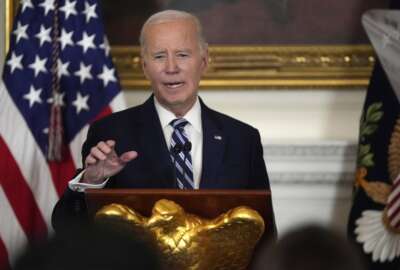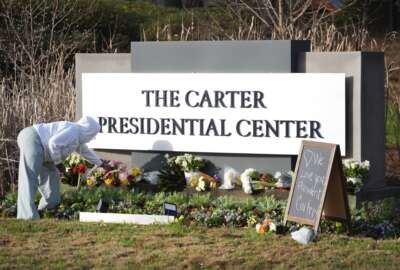Justices seem to favor limits on revoking US citizenship
The Supreme Court seems ready to limit when the government can strip an immigrant of U.S. citizenship for lying during the naturalization process
WASHINGTON (AP) — The Supreme Court seemed ready Wednesday to impose limits on when the government can strip an immigrant of U.S. citizenship for lying during the naturalization process.
The last scheduled argument until October was especially lively and included a sharp rebuke of a Justice Department lawyer by the court’s longest-serving justice and examples of small lies the justices themselves might tell.
The Trump administration contends that even minor lies about driving too fast or omitting childhood nicknames can lead to loss of citizenship.
Justice Anthony Kennedy told lawyer Robert Parker that his argument “is demeaning the priceless value of citizenship.”
Chief Justice John Roberts, who often warns about the government’s vast powers in criminal cases, said the administration’s reading of immigration law could lead to “prosecutorial abuse.” Obama administration lawyers shared the same view as their successors.
The court is considering the case of an ethnic Serb from Bosnia who was stripped of U.S. citizenship for lying about the circumstances that brought her to the United States.
The woman, Divna Maslenjak, and her family were granted refugee status in 1999 and settled near Akron, Ohio, in 2000. She became a citizen in 2007.
She initially told immigration officials her husband had not served in the Bosnian Serb military. That was a lie, she later conceded, and lower courts upheld a criminal conviction against her. The conviction automatically revoked her citizenship, and she and her husband were deported in October.
The issue for the justices is how important her false statements were to her application to become an American citizen. Lower courts have disagreed about the standard.
Roberts tried to illustrate the importance of distinguishing among falsehoods with an example about speeding.
“Some time ago, outside the statute of limitations, I drove 60 miles an hour in a 55-mile-an-hour zone,” Roberts said, to laughter. “I was not arrested. Now, you say that if I answer that question no, 20 years after I was naturalized as a citizen, you can knock on my door and say, guess what, you’re not an American citizen after all.”
Justice Stephen Breyer, a onetime Eagle Scout, pronounced himself shocked by Roberts’ admission, then let on that he might carry a small Boy Scout knife into government buildings from time to time.
Parker said all sorts of answers given on naturalization forms and in interviews may seem innocuous, even if not true. “I mean, you could, you know, lie about your weight, let’s say…The point, though, is, Congress has specifically attended to all false statements under oath in these types of proceedings. It has specifically provided that it is a crime to lie under oath in the naturalization process, even about an immaterial matter, and it has provided that certain of those immaterial lies are categorical bars to naturalization,” Parker said.
Justice Elena Kagan was not convinced, “although I am a little bit horrified to know that every time I lie about my weight, it has those kinds of consequences.”
It’s possible that Maslenjak could win at the Supreme Court and still fail to convince a court that her lies were minor, particularly because she failed to say up front that her husband served in the Bosnian Serb military.
“Why isn’t this obviously material,” or important, Justice Ruth Bader Ginsburg asked.
Christopher Landau, the woman’s lawyer, conceded she might well lose a new court hearing, but should still be able to make her argument to a jury.
A decision in Maslenjak v. U.S., is expected by late June.
Copyright © 2025 Federal News Network. All rights reserved. This website is not intended for users located within the European Economic Area.





